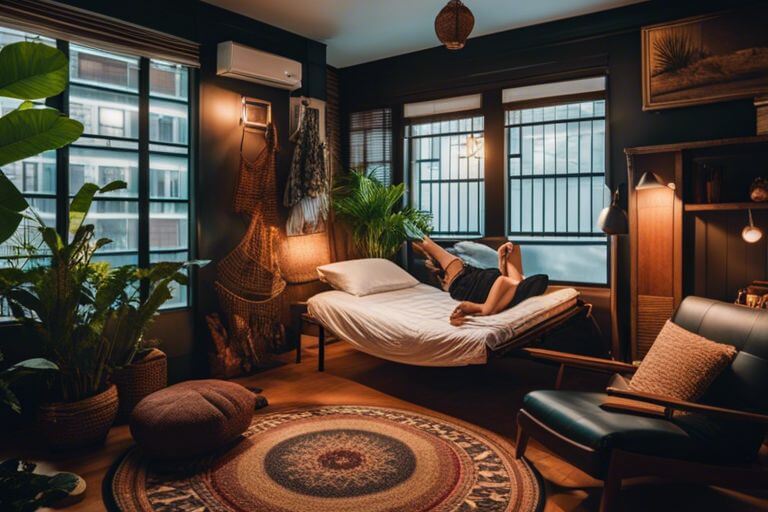Cultural Perspectives on Sleep – Insomnia in Different Societies
It’s no secret that sleep plays a crucial role in our overall health and well-being. Insomnia, the inability to fall asleep or stay asleep, can have serious consequences on our physical and mental health. However, the way different societies view and approach insomnia can vary greatly, with cultural beliefs and practices influencing how it is perceived and treated. In this blog post, we will explore the diverse cultural perspectives on sleep and insomnia around the world, shedding light on the unique ways different societies understand and deal with this common sleep disorder.
Historical Views on Sleep Across Cultures
Ancient Cultures and Mythology of Sleep
One of the oldest documented beliefs surrounding sleep comes from ancient Egyptian culture, where the god Thoth was credited as the inventor of language and writing, and thus the god of wisdom and sleep. In Greek mythology, Hypnos was the personification of sleep, often depicted as a young man with wings on his temples and shoulders. These ancient cultures often intertwined sleep with spirituality and the divine, viewing it as a state where one could connect with higher powers or enter dreams.
Changes in Sleep Perceptions Through Time
Cultures throughout history have seen shifts in their perceptions of sleep. While some societies continued to hold sleep in high regard as a time for spiritual connections or healing, others began to view it as a barrier to productivity or success. Industrialization and modernization in the Western world led to stricter schedules and a decreased emphasis on rest, with insomnia and sleep disorders becoming more prevalent as a result.
Sleep and Lifestyle in Different Societies
Sleep Patterns in Tribal and Traditional Societies
Any discussion on cultural perspectives on sleep would be incomplete without exploring the sleep patterns in tribal and traditional societies. In these societies, sleep is deeply interconnected with natural rhythms and rituals. They often follow a closer alignment with sunrise and sunset, incorporating periods of rest and activity in line with the environment.
Sleep in Industrial and Post-Industrial Societies
Sleep in industrial and post-industrial societies is often influenced by modern lifestyle factors such as technology, work schedules, and urbanization. The prevalence of artificial light sources in the evenings can disrupt natural circadian rhythms, leading to sleep disturbances and insomnia. Additionally, the 24/7 work culture in some societies can contribute to irregular sleep patterns and chronic sleep deprivation.
Insomnia: A Cross-Cultural Analysis
Socioeconomic Factors and Their Impact on Sleep
Many cultural perspectives on insomnia are influenced by socioeconomic factors. In societies where individuals face high levels of stress due to financial insecurity or long working hours, sleep disturbances are more common. Lack of access to adequate healthcare and treatment options can also exacerbate insomnia. Stress stemming from socioeconomic issues can contribute significantly to the development and persistence of insomnia. Assume that addressing socioeconomic disparities is crucial in tackling insomnia effectively.
Approaches to Treatment and Management in Various Cultures
Insomnia is a complex issue that requires tailored approaches in different cultural contexts. Plus, traditional medicine may rely on herbal remedies or acupuncture to address insomnia. In contrast, Western medicine might focus on pharmacological interventions or cognitive-behavioral therapies to treat insomnia. It’s necessary to recognize the cultural nuances in the treatment and management of insomnia, as what works in one society may not be as effective in another.
Psychological and Physiological Aspects of Sleep
The Role of Stress and Anxiety in Insomnia
Role: Stress and anxiety are common contributors to insomnia across different cultures. When individuals are overwhelmed with stress or plagued by anxiety, their minds struggle to relax, making it difficult to fall asleep or stay asleep. This vicious cycle can lead to chronic insomnia, impacting their overall health and quality of life.
Sleep Disorders Beyond Insomnia in a Cultural Context
Aspects: Sleep disorders beyond insomnia, such as sleep apnea, narcolepsy, and restless leg syndrome, also have cultural influences. These disorders can manifest differently in various societies due to cultural beliefs, norms, and practices related to sleep. To effectively address these sleep disorders, it is crucial to consider the cultural context in which they occur, as treatment approaches may need to be tailored to accommodate cultural differences.
Conclusion
Summing up, the cultural perspectives on sleep and insomnia vary significantly across different societies. While some cultures may prioritize productivity and view sleep as a luxury, others place a high value on rest and have structured rituals around bedtime. Understanding these diverse viewpoints can help in tailor-making interventions for addressing insomnia in various communities. By incorporating cultural beliefs and practices into treatment strategies, healthcare professionals can better support individuals struggling with sleep disorders in different societies.

